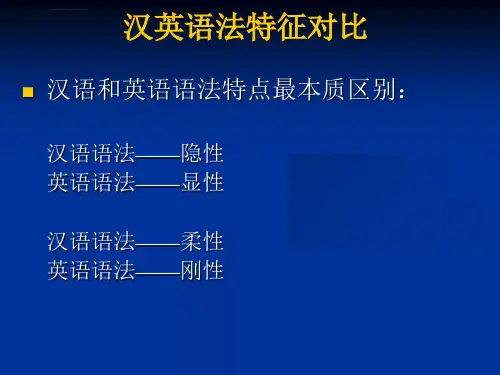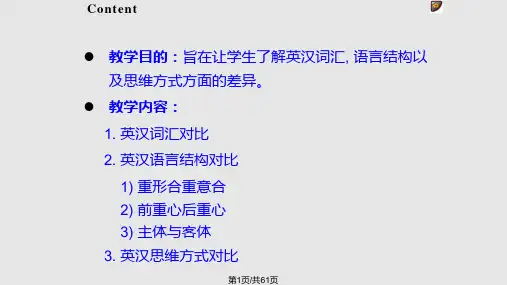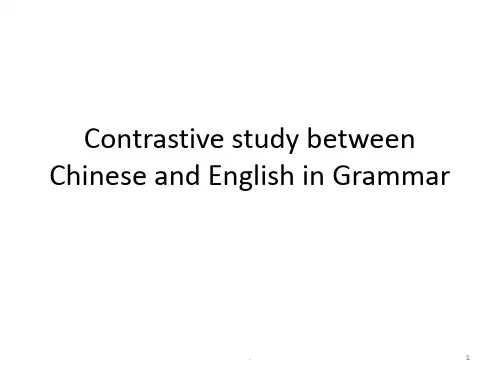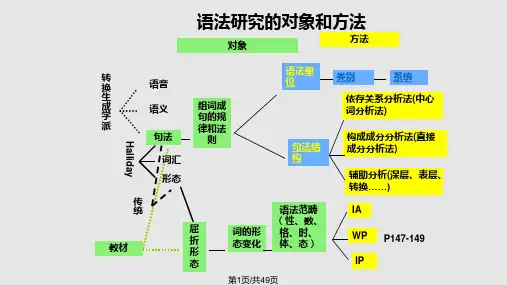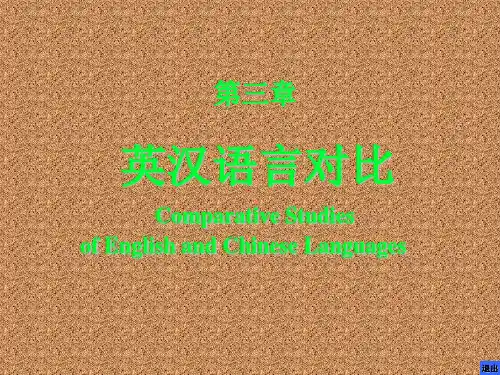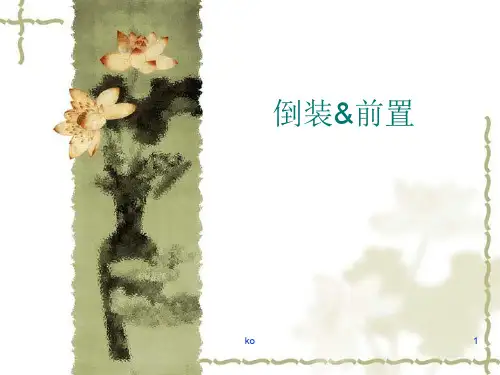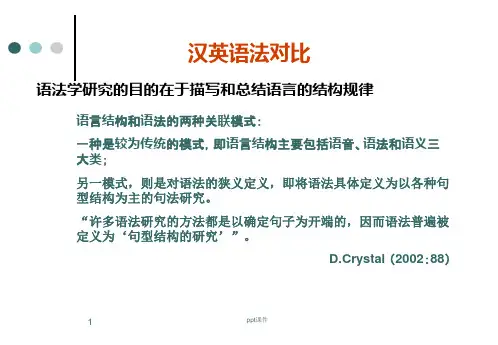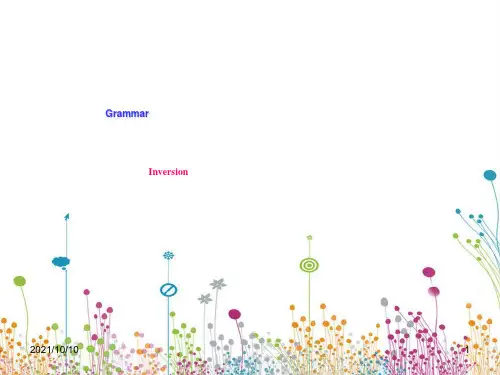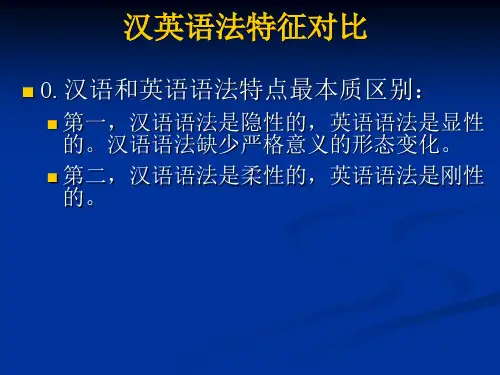▪ 西文句中名物字,多随举随释,如中文之 旁支,后乃遥接前文,足意成句。”(严复) 英语句子“多随举随释”,枝杈蔓生, 呈树状结构,分叉处有介词,关系代词连 接。而汉语按时间顺序或逻辑顺序逐层 展开,节节延伸,犹如竹子。
13
▪ 英语的词组与词组、句子与句子之间结构关 系和逻辑联系必须交代得十分清楚。英语的 关系词(包括介词、关系代词、关系副词、 连接词等)十分丰富,英语正是靠这些关系 词的过渡和连接,从形态上来维系句内和句 间的各种关系的。因此英语句子结构呈树状, 往往有一主干(复合句中的主句或简单句中 的某主要成分),主干上枝蔓横生:句子成 分随时可加以修饰,而修饰语中的某成分又 可被别的成分修饰。由此往往形成长句。
6
参考译文
1.他的话,我可不信。 2.会上讲了什么,我一点没记住。 3.王先生我认识。 4.唱歌,他是最棒的。
7
2.1.2 形合与意合
▪ 英语国家沿袭了古代希腊人非常严格和规范的语 词系统。古代希腊人认为,语词系统与思维系统是 相一致的,要表达一个清晰合理的思想就离不开清
晰合理的词形和句法。而在一个毫无条理的陈述 结构中,思想肯定也是杂乱无章的,而杂乱无章的
5
课内练习
现在请大家通过翻译以下的简单句子熟练掌握这一技巧
1.I would not believe what he said.
2.I did not remember a single point discussed at the meeting.
3.I know Mr. Wang.
4.He is the best singer.
14
▪ 汉语句子结构呈竹节状,逐节(短语 或小句)展开。汉语的句子可以在同 一施事或主题语之下按逻辑顺序铺陈, 虽然小句间有逗号隔开,但语句的联 系仍是紧密的。这样,汉译时经常由 英语的树状转化为汉语的竹节状。

